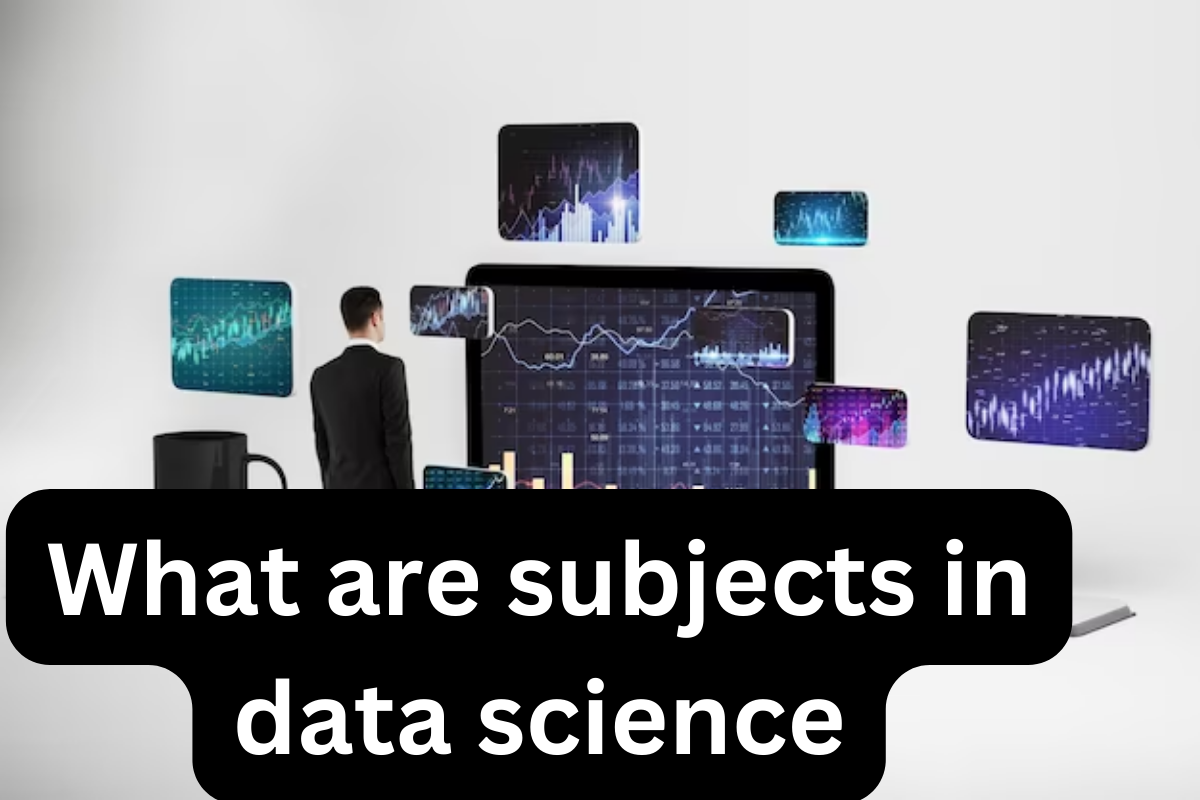Table of Contents
ToggleData science is a broad field that encompasses a range of subjects. Here are some of the key subjects that are typically covered in data science:
Statistics:
Statistics is a key subject in data science, as it provides the foundation for analyzing and interpreting data. Concepts such as probability, hypothesis testing, regression analysis, and Bayesian statistics are important for data scientists.
Mathematics:
Mathematics is also an essential subject in data science, as it provides the tools and techniques for modeling and analyzing complex systems. Linear algebra, calculus, and optimization are some of the key mathematical concepts used in data science.
Learn the core concepts of Data Science Course video on Youtube:
Become a Data Science and AI expert with a single program. Go through 360DigiTMG’s data science offline course in Hyderabad! Enroll today!
Programming:
Programming skills are crucial for data scientists, as they need to be able to manipulate data and build models using programming languages such as Python, R, and SQL.
Data visualization:
Data visualization is a subject that focuses on creating visual representations of data to help people understand and analyze data. Data scientists need to be able to create effective visualizations that communicate insights and trends in the data.
Machine learning:
Machine learning is a subfield of data science that focuses on building models that can learn from data and make predictions or decisions based on that learning. Data scientists need to have a strong understanding of machine learning algorithms and techniques, such as decision trees, neural networks, and support vector machines.
Data engineering:
Data engineering is a subject that focuses on building and maintaining the infrastructure necessary for storing, processing, and analyzing large volumes of data. Data scientists need to have a basic understanding of data engineering principles, such as database design, data warehousing, and ETL (extract, transform, load) processes.
Want to learn more about data science? Enroll in this offline data science course in Chennai to do so.
Domain expertise:
Finally, data scientists often need to have domain expertise in a particular area, such as finance, healthcare, or marketing, in order to be able to understand the data they are working with and to generate insights that are relevant and actionable for stakeholders in that domain.
Data ethics:
As data science involves working with sensitive information, data ethics is an increasingly important subject. Data scientists need to understand the ethical and legal considerations surrounding data collection, storage, and analysis, as well as the potential consequences of their work on individuals and society.
Big data:
Big data is a subject that deals with the challenges of processing and analyzing extremely large and complex datasets. Data scientists need to have a good understanding of big data technologies such as Hadoop, Spark, and NoSQL databases, as well as techniques for distributed computing and parallel processing.
Natural language processing:
Natural language processing (NLP) is a subfield of data science that deals with the processing and analysis of human language. Data scientists working in areas such as text analytics, sentiment analysis, and chatbots need to have a good understanding of NLP techniques and algorithms.
Data Science is a promising career option. Enroll in the best data science course in Bangalore with placement offered by 360DigiTMG to become a successful Data Scientist.
Time series analysis:
Time series analysis is a subject that focuses on modeling and analyzing data that changes over time. Data scientists working with data such as stock prices, weather patterns, or consumer behavior need to have a good understanding of time series analysis techniques.
Data mining:
Data mining is a subject that focuses on discovering patterns and relationships in large datasets. Data scientists need to have a good understanding of data mining algorithms such as clustering, association rule mining, and anomaly detection.
Data storytelling:
Data storytelling is a subject that involves presenting data insights in a compelling and understandable way to stakeholders. Data scientists need to be able to communicate effectively using visualizations, reports, and presentations to help stakeholders understand the key insights and trends in the data.
Data cleaning and preprocessing:
Data cleaning and preprocessing are essential subjects in data science, as data scientists need to be able to clean and transform data into a usable format for analysis. This involves tasks such as identifying missing or inconsistent d
ata, dealing with outliers, and transforming data into a standardized format.
Deep learning:
Deep learning is a subfield of machine learning that involves building neural networks capable of learning from large amounts of data. Data scientists working with complex data such as images, audio, or video often use deep learning techniques to extract features and make predictions.
Optimization:
Optimization is a subject that deals with finding the best solution to a problem within a given set of constraints. Data scientists often use optimization techniques such as linear programming, nonlinear programming, and stochastic optimization to solve problems such as resource allocation or scheduling.
360DigiTMG offers python data science course in Pune to start a career in Data Science. Enroll now!
Cloud computing:
Cloud computing is a subject that involves using remote servers to store, process, and analyze data. Data scientists need to have a good understanding of cloud computing platforms such as Amazon Web Services (AWS), Microsoft Azure, or Google Cloud Platform, as well as techniques for deploying and scaling data science models in the cloud.
Data governance:
Data governance is a subject that involves establishing policies, procedures, and standards for data management within an organization. Data scientists need to have a good understanding of data governance principles, such as data quality, data security, and data privacy, to ensure that data is managed in a responsible and ethical way.
Data Science Placement Success Story
Data fusion:
Data fusion is a subject that involves integrating data from multiple sources to create a more complete and accurate representation of a system or phenomenon. Data scientists need to have a good understanding of data fusion techniques such as sensor fusion, feature fusion, and decision fusion, to combine data from different sources and extract meaningful insights.
Data storage:
Data storage is a subject that deals with the different types of data storage options available, such as relational databases, NoSQL databases, and data lakes. Data scientists need to have a good understanding of data storage options and their pros and cons to make informed decisions about storing and managing data.
Becoming a Data Scientist is possible now with the 360DigiTMG data science online course program. Enroll today.
Data security:
Data security is a subject that involves protecting data from unauthorized access, use, disclosure, or destruction. Data scientists need to have a good understanding of data security principles, such as access controls, encryption, and authentication, to ensure that data is protected throughout its lifecycle.
Data governance:
Data governance is a subject that involves establishing policies, procedures, and standards for data management within an organization. Data scientists need to have a good understanding of data governance principles, such as data quality, data security, and data privacy, to ensure that data is managed in a responsible and ethical way.




